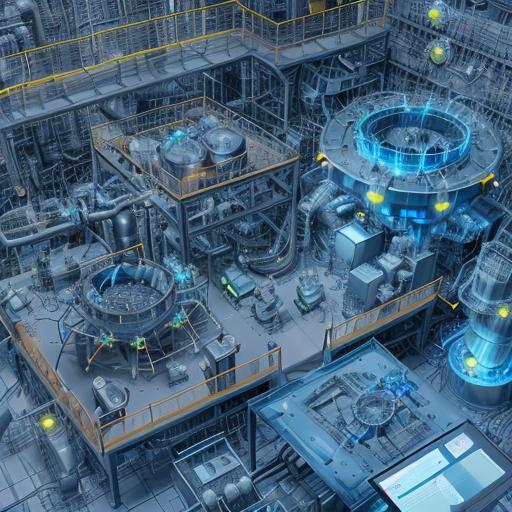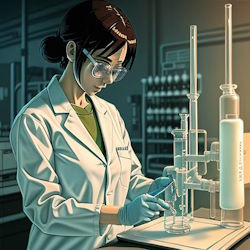Advanced Modeling and Control
Explore powerful techniques in advanced process control and modelling. Learn how to design and implement control strategies for dynamic, multivariable industrial systems using MATLAB’s Simulink. You’ll also get hands-on with tools for data analysis, empirical modelling, and process optimization to improve equipment performance and efficiency.

Course Overview
This course builds upon introductory process control course (CHEN3005: Process Instrumentation and Control). It introduces advanced modeling and control techniques. The course aims to provide broad overview of various topics and provide foundational knowledge for further exploration of the subject. While not comprehensive, it covers essential material, and current trends.
Most of the material is designed to be easily understood by undergraduate chemical engineering student. However, some background in mathematics, including differential equations, as well as a solid understanding of material and energy balance concepts and unit operations.
The unit is divided into two parts: advanced control, and advanced modeling. In the advanced control section, we delve into the complexities of industrial processes, which are dynamic and often multivariable. To effectively control such processes, advanced techniques beyond simple feedback loops studied in the Process Instrumentation and Control unit are required. The key focus of this section is on the design and implementation of advanced process control methods in process plants. Additionally, we will explore the utilization of Simulink, a MATLAB tool, for controller design and simulation.
In advanced modeling section, we will address the crucial role of mathematical modeling in the design and optimization of process equipment. This section equips students with modeling tools for data analysis, empirical modeling, and process design. These tools are essential for understanding and representing the behavior of complex processes, aiding in optimization efforts and decision-making. This year, we will focus on data driven models and also explore some aspects of machine learning and its applications to statistical process control.
By combining the two components, students will gain the necessary skills to tackle the challenges of dynamic and multivariable industrial processes, enabling them to understand, and design effective control strategies and optimize process performance.
What do process control engineers do?
Learning Outcomes
- Apply a range of advanced control techniques to chemical, mineral and petrochemical processes.
- Explain multi-loop control design, including pairing and decoupling of chemical processes.
- Apply a range of advanced model formulation and solution techniques to chemical processes.
- Demonstrate the effective use of software, such as MATLAB for process modeling and for control system design.
Teaching Staff

A/Prof. Ranjeet Utikar
- Building 204, Room 432
Bentley Campus - r.utikar@curtin.edu.au
- +61 0892669837
- Schedule an appointment

A/Prof. Ranjeet Utikar
- Building 204, Room 432
Bentley Campus - r.utikar@curtin.edu.au
- +61 0892669837
- Schedule an appointment

A/Prof. Jobrun Nandong
- Skylark 3 Room 322
Miri Campus - jobrun.n@curtin.edu.my
- +60 85 630 100 Ext: 2412

Ms. Cherie Ha
- Faculty of Science and Engineering
Bentley Campus - TeachingSupport-WASM-MECE@curtin.edu.au

Ms. Dora Indin
- Skylark 3 - Room 402
Miri Campus - dora.indin@curtin.edu.my
- +60 85 630100 Ext:2531